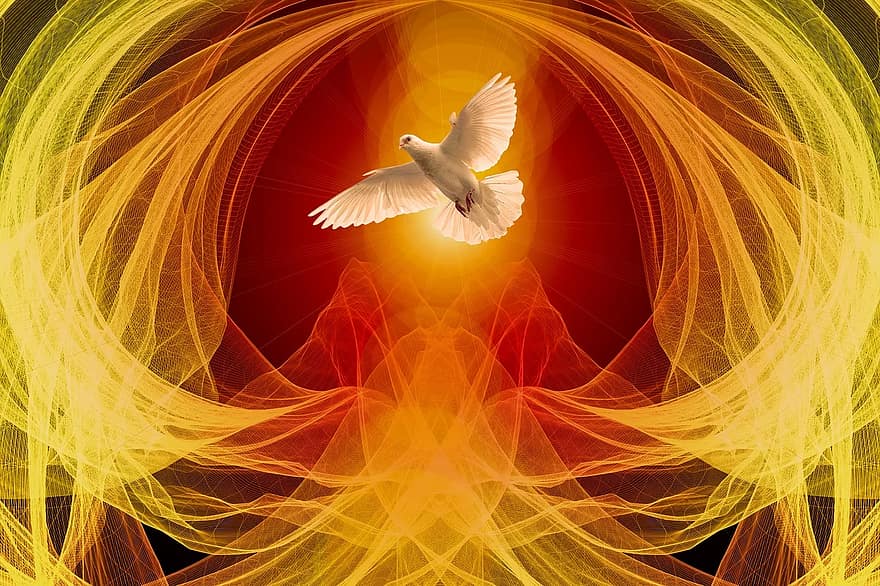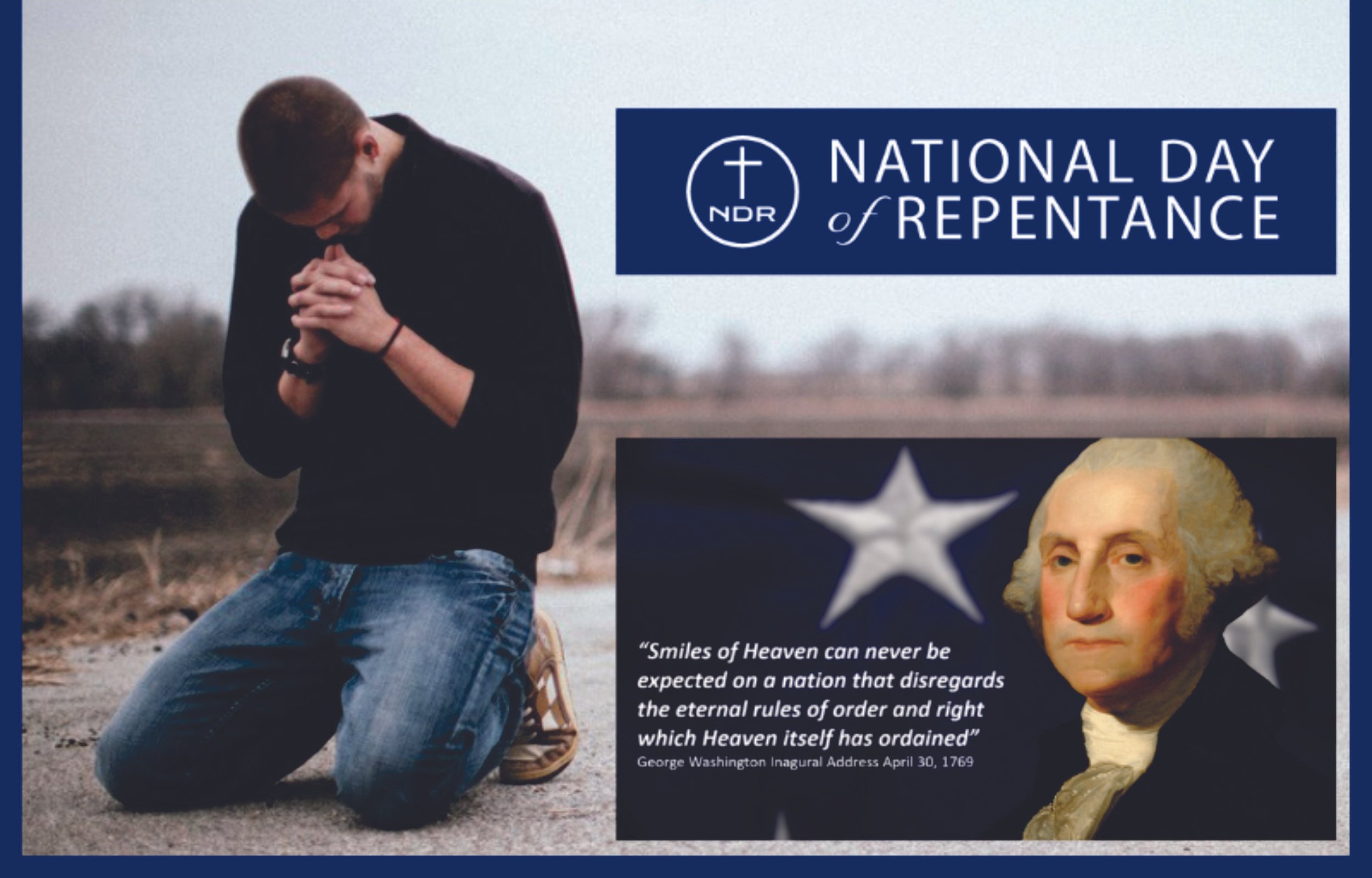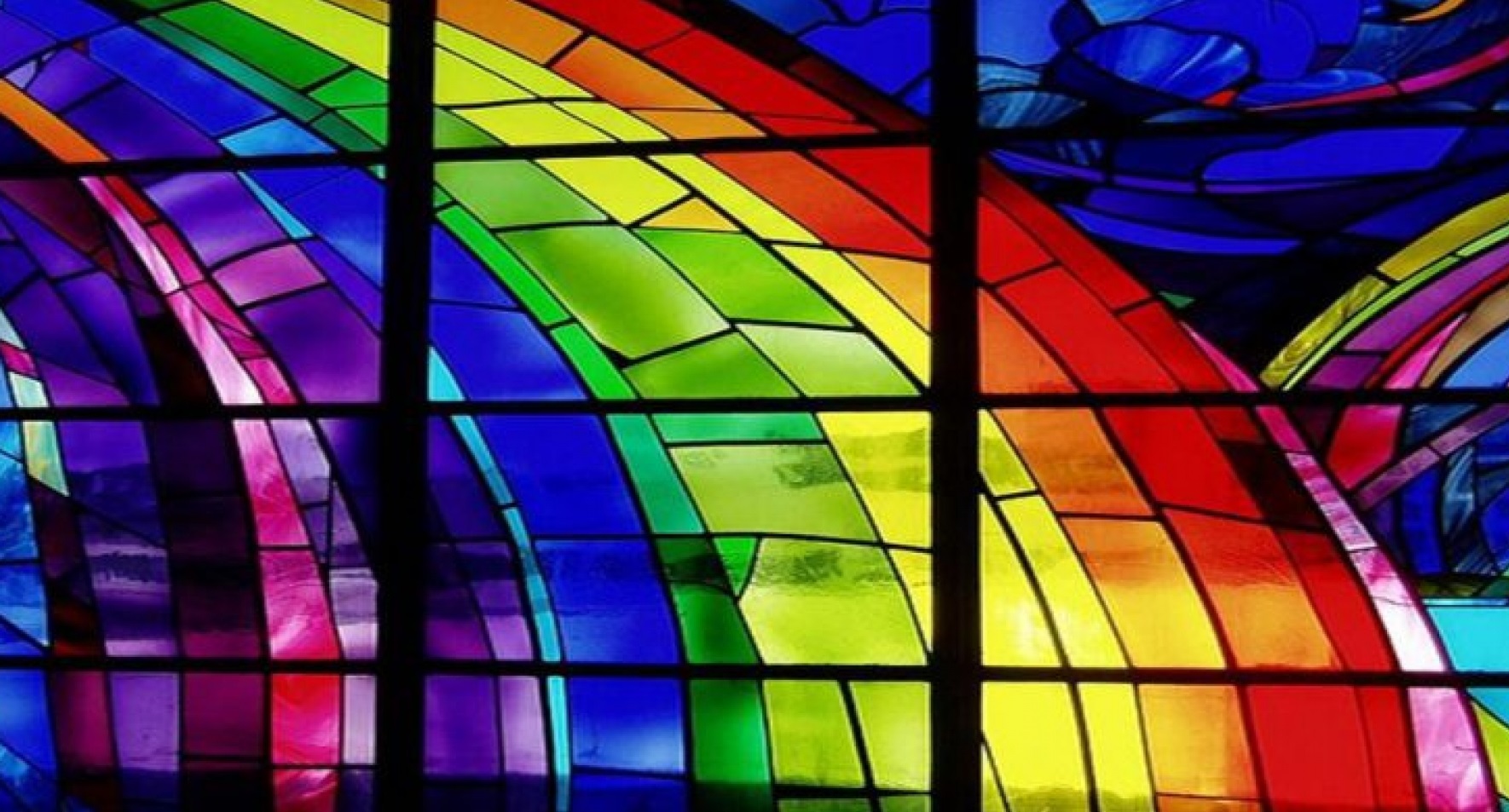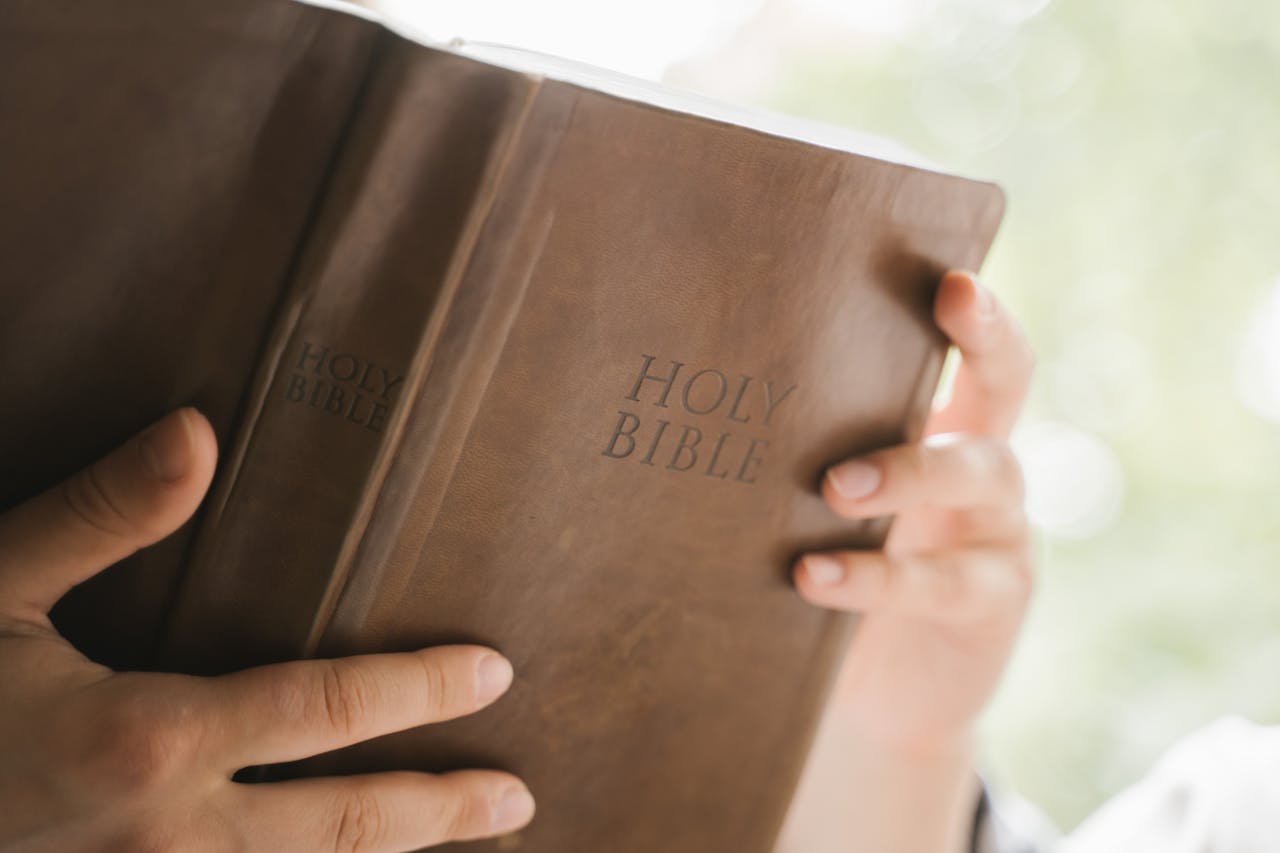
The Rushing Mighty Wind Story and the Need for Reformation & Revival
In this sermon, Rev. David Jones explores the true nature of revival—as the rushing mighty wind of the Holy Spirit, a sovereign work of God. He highlights the similarities between the 1517 Reformation and the day of Pentecost in Acts 2.
___
Editor’s Note: This article is a transcript of a sermon given by the Rev David Jones on the 500th Anniversary of the Reformation that began in Wittenberg on 31 Oct 1517. In this article, Jones argues the case that you cannot have a true revival without a true reformation. The team at the Canberra Declaration would concur. Our nation and our world are in desperate need of a sovereign outpouring of the Holy Spirit. Fervent united prayer is the key to revival in church and nation. We thank Rev Mark Powell for giving us this very good sermon to publish on the Daily Declaration.
___
Iain Murray1 has described the Reformation as “the greatest Revival since Pentecost, a springtime of new life for the Church on such a scale that the instances recorded in the apostolic era of three thousand being converted on one day, and of a ‘great multitude of the priests’ becoming ‘obedient to the faith’, no longer sounded incredible”
It’s possible to consider the Reformation from many aspects as indeed we have been doing this week, but we mustn’t miss the fact that the only satisfactory explanation of what happened 500 years ago is an outpouring 0f the Holy Spirit—there really is no other category in which we can put these events.
When the Holy Spirit is poured out in a day of power, the result is bound to affect whole communities and even nations. Conviction of sin, an anxiety to possess the Word of God, and dependence on those truths which glorify God in man’s salvation, are inevitable consequences.
Revival and Reformation: What We Mean
Now of course we need to define what we mean by “Revival and Reformation”.
“Often people have acted as though one has to choose between reformation and revival,” says Francis Schaeffer,2
“Some call for reformation, others for revival, and they tend to look at each other with suspicion. But reformation and revival do not stand in contrast to one another; in fact, both words are related to the concept of restoration. Reformation speaks of a restoration to pure doctrine, revival of a restoration in the Christian’s life. Reformation speaks of a return to the teachings of Scripture, revival of a life brought into proper relationship to the Holy Spirit. The great moments in church history have come when these two restorations have occurred simultaneously.”
That’s what happened in Europe 500 years ago.
Jim Packer3 says a revival is one of those “‘concertina-words’ which describes the personal quickening of an individual, but at the other end of the scale, revival has its broadest meaning when it is applied to the church. Anyone who knows what it is to be spiritually awakened, to be made aware of the reality of God and the corruption of his own heart, to taste the forgiveness of sins and the miracle of the new birth, has a key to what happens in revival”
Revival is the conviction and conversion of a great number of people, taking place contemporaneously, publicly, and very often, dramatically, to the great increase and expansion of the Church.
In other words, there is no fundamental, qualitative difference between the work of the Spirit in the case of one individual and the work of the Spirit in that which we call revival, but only a difference of degree. Both are the work of the same Spirit of God; both are equally miraculous and supernatural, like the wind which blows where it wills.
Remember what Jesus said to Nicodemus in John 3:8:
“The wind blows where it wills. You hear its sound, but you cannot tell where it comes from or where it’s going.”
You can’t command the wind—you can see the effect of it, you can hear it whistling through the treetops—but you can’t control it. “So, it is with everyone who is born of the Spirit. And so, it was on the Day of Pentecost: “Suddenly there came from heaven a sound like a mighty rushing wind” (Acts 2:2).
Was Pentecost Really the Birth of the Church?
Pentecost has sometimes rather mistakenly been described as the birthday of the Christian Church. I have even seen the disciples pictured in a child’s story bible as so many birthday candles with little flames coming out of the top of their heads. But that is not precisely correct or accurate because the word ‘church’ in both Hebrew and Greek simply means “the called out ones,” and God began doing that way back in the Old Testament.
At least since the time of Abraham, he has been calling out a people to himself—saved by grace and living according to his word. What makes this unique is the descent of the Holy Spirit.
There’s a sense in which the Old Testament people of God became the New Testament people of God because down came the Holy Spirit with a transforming power that had never been known before.
As Tim Keller says, “in a sense, the people of God are getting re-booted, re launched here at Pentecost.”4 To put it another way, maybe as good Presbyterians, what we should see here is not so much a birthday cake but a burning bush.
Remember how God revealed himself to Moses at the burning bush in Exodus 3? Moses stands before the bush and it’s blazing with fire, but it’s not burnt up, and he’s told, “Take off your shoes; this place is holy—God is here” And now we see something even more brilliant on the day of Pentecost. Here are people on fire but they are not burnt up.
That’s the most amazing thing about Pentecost.
Because of Calvary, you and I can be filled with the Spirit of God and yet not be consumed. It’s mind-blowing, isn’t it? “Our God is a consuming fire”, the Bible says. And now here is that God who is a consuming fire, coming to live in his church, by his Holy Spirit. The church has become like the burning bush. God is here and because of Jesus and his death for us, you and I are not consumed.
Now let’s look at this very significant event and I want to compare it with what happened 500 years ago here in Europe. I want to bring out the significance of it under these three headings:—
- First, the World was there
- Second, the Word was preached, and
- Third, the Wind was blowing
-
First, the World was there
Notice what it says in verse 5: “Now there were staying in Jerusalem God-fearing Jews from every nation under heaven.”
Luke gives us here a table of nations like the one you get in Genesis 10 just before the tower of Babel. It’s his way of saying the whole world was there.
Let`s look at it, shall we?—verses 9-11:
“Parthians and Medes and Elamites and residents of Mesopotamia, Judea and Cappadocia, Pontus and Asia, Phrygia and Pamphylia, Egypt and the parts of Libya belonging to Cyrene, and visitors from Rome, both Jews and proselytes, Cretans and Arabians”.
Have you ever wondered why the Holy Spirit has included so many of these lists in the bible?—long lists of unpronounceable names? It’s because God is interested in all these different people groups. His great concern is that all people everywhere will hear about Jesus.
Let me contemporise it for you. There are people here from Turkey, Greece, Iraq, Iran, Saudi Arabia, Israel, Lebanon, Egypt, Libya, North Africa, Crete, and Italy. These are some of the hardest places in the world today for the gospel.
We almost need to tick them off all over again, don’t we?
And yet on the Day of Pentecost, they all heard the gospel in their own language. See what it says in verse 11: “we hear them telling in our own tongues the mighty works of God” (literally “in our own dialect”—in the vernacular, the language of the common people).
It was a spectacular miracle!
For a moment the heavy Galilean, “hill-billy” accent of the disciples disappeared, and everyone present heard about the wonderful things God has done in Christ in their own dialect, in the vernacular! Now, there is a sense in which this was an unnecessary miracle because they all spoke Greek—just as today everyone speaks English. It was the common language.
And yet God refused to speak to them in the dominant language of the day—or, for that matter, in the religious language of Judaism—because although they were Jews most of them would not have been able to speak Hebrew. Instead, look what it says in verse 8:
“we hear, each of us in his own native language…”
That is surely very significant, isn’t it?
When the Gospel was first preached to the world it was preached in every language at once. No language or culture has precedence over any other. No language or culture has pride of place. You know that, for Muslims, God speaks Arabic. The Qur’an cannot be translated. If you want to have God’s word you must hear it and read it in Arabic.
For some conservative Christians today God speaks Elizabethan English: if it’s not the King James Version, it’s not the word of God! In the Middle Ages, God spoke Latin, and only the priests spoke Latin and not even all of them. That was the great thing that happened at the time of the Reformation: the Bible was translated into the vernacular and people could hear it and read it for themselves. And not only that but the printing press was invented and God’s word was translated and circulated all over Europe.
In 1526, Tyndale completed translating the first English New Testament. Despite strenuous efforts by Catholic bishops and other church officials (including the burning of Bibles and people), thousands of copies of Tyndale’s New Testament were printed and smuggled into England.
William Tyndale made it his life’s work to produce a Bible for the common man. He famously said to a corrupt priest that if God spared his life, “he would cause a boy that drives the plough to know more of the Scriptures than he did”.5
According to Merle d’Aubigne, the Reformation in England was essentially the work of Scripture. He says, “The only true reformation is that which emanates from the Word of God” 6 There is no question about it: the translation and distribution of the Word of God in the common tongue led to a quickening of the people of God.
I think it would be fair to say that if there is one place in the O.T which speaks of Revival and Reformation, it’s Psalm 119, isn’t it?
That whole psalm is really a prayer for revival.
“Quicken me O Lord, according to your Word,” the Psalmist prays (Psalm 119:107). And that refrain is repeated right throughout the Psalm. Eleven times the psalmist prays for God to quicken and revive his people, but it is always according to his word. And surely that’s part of the significance of Pentecost, isn’t it?
God wants his word to go out into all the world. He wants all people everywhere to hear about Jesus.
It’s a deliberate dramatic reversal of Babel.
At Babel the nations were scattered, their languages confuse, but now at Pentecost the language barrier is supernaturally overcome and the nations are gathered together in Christ, prefiguring that great day when, according to the book of Revelation, every nation, tribe and tongue will stand before the throne. And that’s where our hope lies for the next 500 years—should the Lord tarry—not in politics, but in Pentecost; not in globalization but in the Gospel; not in the United Nations but in the Church of Jesus Christ; not in humanism but in the supernatural intervention of God.
God’s great purpose is to gather all nations together under the lordship of Christ, and he does so, not at the point of a sword -but by the preaching of the Gospel. Nothing else will do it! And that leads me into my second point.
The world was there, and secondly…..
-
The Word was preached.
That is the most obvious thing about Pentecost, and at the same time, it’s the thing most people overlook. We notice the extraordinary phenomena—the tongues of fire and the mighty rushing wind—but central to the Pentecost event was a sermon. And the whole chapter is taken up with that sermon.
As someone has said, “The meaning of Pentecost is not to be found in the interior private experience of the disciples but in the public proclamation of the gospel”.
Before the Reformation, for the best part of a thousand years, the light of the gospel was all but extinguished as heresies were introduced, pagan practices within the church flourished and an unscriptural ecclesiastical hierarchy arose, slowly snuffing out ‘the light of the glorious gospel of Christ.’
During this millennium there was no major revival.
It was the dark night of the church!
Century after century went by with only splutterings of light until the Christian Church had become but a caricature of the New Testament church. And then God “commanded the light to shine out of darkness”. The Reformation was essentially a rediscovery of the Gospel.
Tim Keller in Centre Church describes revival as “a life changing recovery of the gospel. The gospel doctrines of sin and grace are actually experienced, not just known intellectually”7 That’s what happened to Luther in the tower here in Wittenberg in the spring of 1513—the light of the Gospel shone into his heart.
“Night and day,” he says,
“I pondered until I saw the connection between the righteousness of God and the statement that ‘the just shall live by faith.’ Then I grasped that the righteousness of God is that righteousness by which through grace and sheer mercy, God justifies us through faith. Thereupon I felt myself to be reborn and to have gone through open doors into paradise. The whole of Scripture took on a new meaning, and whereas before ‘the righteousness of God’ had filled me with hate, now it became to me inexpressibly sweet in greater love. This passage of Paul became to me a gate to heaven…”
He called this “the principal article of all Christian doctrine,” and he said, “we need to know it well, teach it to others and beat it into their heads continually.”8
That was how Luther preached. He didn’t just hammer the truth onto the door of Wittenberg Cathedral; he hammered it into the hearts of his hearers. And it led to “a great wave of newly awakened enquirers, soundly converted sinners, and spiritually renewed believers”.
Here in Wittenberg, about 400 students attended Luther’s lectures, and, one by one, the entire faculty of twenty-two professors came to embrace the truth of justification by faith alone.9 In Calvin’s Geneva, over a thousand people gathered every day to hear Calvin expound the Scriptures.
Church planters and evangelists were trained up and sent over the Alps into France and it is estimated that such was the blessing that followed the preaching of these gospel messengers that, after just a few years, an official census in 1562 revealed that there were 2,150 churches with 3 million members out of a total population of 20 million.10 That’s what happens when the gospel is preached in the power of the Holy Spirit—sinners get saved; sleepy Christians wake up, and nominal Christians are converted.
And that’s what you see here on the day of Pentecost. Look at verse 14:
“Peter stood up…. raised his voice and addressed the crowd.”
And when you read Peter’s sermon, it’s not a sermon on how to speak in tongues, is it? It’s not even a sermon on the Holy Spirit. It’s all about who Jesus is and what he has done for us.
It’s preaching to the heart, not just to the head, isn’t it? And it demands a response, and we are told there in verse 37 that “those who heard it were cut to the heart and 3000 were added to the church that day”. And it didn’t stop there—Acts is the story of ongoing Revival:
“every day the Lord added to the church, those who were being saved.”
One of the features of authentic revival is that things which would ordinarily take decades are suddenly achieved with an unheard-of immediacy.
The great theologian of Revival Jonathan Edwards writes
“from the fall of man to our present day, the work of redemption …. has mainly been carried on by remarkable communications of the Spirit of God…….Though there be a more constant influence of God`s Spirit always in some degree attending his ordinances, yet the way in which the greatest things have been done in carrying on this work has always been by remarkable outpourings of the Spirit at special seasons of mercy”.11
That’s what is happening here. The number of believers multiplied 26 times in a single day.
John Knox said of the Reformation in Scotland — “God is raining down people from the skies.” There were so many conversions. Hugh Latimer, the English Reformer, often preached in the open air to 6000 people at a time. It’s what Jesus promised his followers just hours before his crucifixion.
“I am going to the Father,” he told them—that’s shorthand for his death, resurrection ascension and exaltation—
“…and it’s to your advantage that I go away, because if I don’t go, the Spirit will not come, but when He comes he will prove the world to be wrong about sin and righteousness and judgement.”—and that`s what is happening here—”you will do even greater things than you have seen me do,” he told them.
How is that possible?
Well, here it is… How many followers did Jesus have after three years of intensive ministry? One-hundred and twenty.
And now in one day, 3000 are added to the church through this one sermon. Central to the Pentecost event is a sermon. How boring is that?—a sermon!
But what a sermon!
Lawrence Crabb in his little book “Encouragement” describes his first sermon. “It was a disaster,” he says
“when the Apostle Peter preached his first sermon, on the day of Pentecost, 3000 souls were saved. When I delivered my first sermon 20 folk warmly expressed their sympathy.”12
And that leads into my third point. The World was there, the Word was preached and…
-
The Wind was blowing.
Look at verse 2:
“Suddenly there came from heaven a sound like a mighty rushing wind, and it filled the entire house where they were sitting.”
Martin Lloyd Jones was asked in an interview towards the end of his life, “Is the preaching any different in Revival?” He said,
“I would rather put it this way: something has to happen to the preacher for Revival to come.”
Something happened to Peter that day, didn’t it? All the lights went on—everything Jesus had been teaching him over the last three years, and especially during those 40 days leading up to his ascension, came together. And when he got up to speak that day, he spoke with the Holy Spirit sent down from heaven with great power and conviction—the wind was blowing! And that’s how the gospel came to Macedonia, Paul says to the Thessalonians in 1 Thessalonians 2:13:
“we… thank God continually because, when you received the word of God, which you heard from us, you accepted it not as a human word, but as it actually is, the word of God, which is indeed at work in you who believe.”
He reminds them in 1:5:
“our gospel came to you not in word only, but also in power and in the Holy Spirit and with full conviction”
And that kind of preaching sent shockwaves for miles in every direction and the church at Thessalonica became the epi-centre of Gospel ministry for that whole region.
1 Thessalonians 1:8 says “The Lord’s message rang out from you not only in Macedonia and Achaia your faith in God has become known everywhere.”
What was it that turned Europe upside down 500 years ago?
Think of the state of the Western church at the beginning of the 16th century—a more bleak and dismal state of affairs you could not imagine. The Temple of the Lord was in ruins—the Gospel was all but obscured, the establishment corrupt, and the ordinary people lethargic and apathetic.
What changed all that?
Was it just the enunciation of correct doctrine? Of course not. It was the preaching of the Word in the demonstration and power of the Holy Spirit. Luther said,
“I simply taught, preached, and wrote God’s Word; otherwise I did nothing. And while I slept, or drank Wittenberg beer with my friends Philip and Amsdorf, the Word so greatly weakened the papacy that no prince or emperor ever inflicted such losses upon it. I did nothing: the Word did everything.”13
John Howe was one of Oliver Cromwell’s chaplains during the Civil War. Preaching in 1678 and looking back on the great days of the Puritan revival, he told his congregation:
“When the Spirit shall be poured forth plentifully…I believe you will hear much other kind of sermons…than you are wont to now-a-days…. .It is plain, too sadly plain, that there is a great retraction of the Spirit of God even from us. We (preachers) know not how to speak living sense unto souls – how to get within you; our words die in our mouths, or drop and die between you and us. We even faint, when we speak; long experienced unsuccessfulness makes us despond. We speak not as persons that hope to prevail, that expect to make you more serious, heavenly, mindful of God, and to walk more like Christians…BUT when the Spirit is poured out……ministers…shall know how to speak to better purpose, with more compassion and sense, with more seriousness, with more authority and allurement, than we find we can” 14
When the Spirit is poured out… come back with me to verse 5:
“Now there were staying in Jerusalem God-fearing Jews from every nation under heaven…’”
I skipped over that earlier; I said that Pentecost is a reversal of Babel, and I believe that to be profoundly true… BUT there is something much more obvious that is happening here.
The clue is in the question the disciples ask in 1:6: “Lord, are you at this time going to restore the kingdom to Israel?” And many of the commentators just laugh that off, as if the disciples are being stupid. But don’t forget, according to 1:3, they have just done an intensive crash course with Jesus on this very subject—The Kingdom of God. It’s a logical question for them to ask.
And Jesus doesn’t ignore it or brush it off as some seem to think.
He gives them an answer, doesn’t he? It’s there in 1:7:
“He said to them: ‘It is not for you to know the times or dates the Father has set by his own authority. BUT you will receive power when the Holy Spirit comes on you; and you will be my witnesses in Jerusalem, and in all Judea and Samaria, and to the ends of the earth.'”
Pentecost is the answer to their question.
Pentecost is the restoration of the kingdom to Israel—that’s why they had to appoint a twelth apostle. That’s why they had to wait until the Day of Pentecost for the diaspora to arrive in Jerusalem—”Jews from every nation under heaven”.
Not only is this the reversal of Babylon, it is the fulfilment of Ezekiel 37 when God takes Ezekiel out into the desert and shows him a valley of dry bones. And he asks him, “Son of Man can these bones live?” And Ezekiel just shrugs his shoulders. “God knows!” he says.
I think he’s evading the question, don’t you?
“Sovereign Lord, you alone know.”
“Yes,” says God, “I do know—but I am asking you, Ezekiel, ‘Can these bones live?'” Let’s see, shall we? “Prophesy to the bones. Say to them, ‘Dry bones, hear the word of the Lord!'” And, guess what:
“there was a noise, a rattling sound, and the bones came together, bone to bone.”
The knee bone connected to the thigh bone and so it goes on—dem bones; dem bones; dem dry bones—hear the word of the Lord. But still, there was no life in them. There was a reformation of sorts, a rearrangement, a reassembling of the bones, but still, there was no life.
And then Ezekiel is told to pray, “Come, from the four winds, O breath of God and breathe into these slain, that they may live.” And we are told, “breath entered them; they came to life and stood up on their feet—a vast army”
Isn`t that what’s happening here on the day of Pentecost?
The church is not replacing Israel. The church is Israel: restored, revived. And God says to his re-booted, revived people:
“You will be my witnesses, from Jerusalem to Judea, and Samaria to the ends of the earth.”
That was always God’s intention for Israel—to be a missionary people, to carry the good news of Salvation out from Jerusalem to the ends of the earth. That’s what is happening here in Acts. That’s what Pentecost is: the revival of Israel for God’s mission to the world. Revival is for mission. And it starts here in Jerusalem on the day of Pentecost.
In some respects, Pentecost might be viewed as the inaugural revival of the New Testament epoch. And of course, it’s unique. Pentecost cannot be repeated, but neither can it be retracted.
We are now living in the Pentecostal era. You may think that addressing a valley of dry bones and telling them to live is hardly a sane occupation.
Welcome to my world! I do it every week, don’t you? Ezekiel was sent to a cemetery, but he was sent—and so are we. This is what we do every week—we preach to people who are “dead in trespasses and sin” and we pray for the wind to blow. And from time to time we have heard “the sound of a rustling in the tree tops”, but what do we know of this “rushing mighty wind from heaven?”
Conclusion
Let me try to wrap this up, with just a couple of observations if I may. I want to speak briefly about two obstacles or hindrances to Revival: Formalism and Finneyism
- Formalism:
What happened here in Europe 500 years ago was not simply the rediscovery of the Gospel but the re-formation of the church. You see not only was the teaching of the church wrong—the entire church system was wrong too. And a revolution took place in our thinking about the nature of the church.
The Catholic view is that the Church is essentially an institution—a religious, a divine institution, but an institution not wholly unlike institutions such as Law or Medicine.
Just as those institutions have the resources and provision for your particular needs, so has the Church. She has in her possession—or at her call—everything you need: the ‘time-hallowed’ forms of worship. The sacraments. She dispenses the medicine of the soul through priests and sacraments. In this sense, the Church exists independently of the congregation: if nobody calls, the shop is always open.
As a religious institution, the Church also becomes a social and cultural establishment, a bond across the centuries, and a reliquary of a people’s traditions. Sometimes it becomes the classical expression of a people’s identity, like the Orthodox Church once was in Russia, or as the Roman Church is today in Poland, or the Anglican Church in England—you can’t separate being English from being Anglican—or the Welsh chapel in Wales. So that even if you are an atheist or an agnostic you still belong to church or chapel.
There is no room for revival in that understanding of church.
And so when Revival has come in the past and the Church as an institution has found herself unable to tame or control it, she has set her face against it. This is what the Roman Church did to the revival movements in the Middle Ages and the Anglican Church to the Puritan and Methodist movements.
On the other hand, if we think of Church as it is described here in Acts 2 as a community of people brought into being by the reviving influences of the Spirit and the Word—in other words, a community of believers—then revival, by definition, is the very principle of her life.
The power that brings to life is the power that sustains life.
The Church as a body of believers stands in continuous need of the reviving Spirit of God. As a people quickened and made spiritually alive, the very secret of our survival is that the same Spirit of life continues to breathe on us and through us.
This has always been so.
Even in the Middle Ages, when the Church as an institution was at its strongest, these spiritual breezes brought into being across Europe companies of believers—Lollards in England, Waldensians in Italy, Albigensians in France, and many movements in Central and Eastern Europe, even though some of them later inclined towards heterodoxy and error. Since the Protestant Reformation, however, when the Word of God was set free, there has scarcely been a time when the breezes of revival have not been felt to some degree in various parts of the world, right up to the present time!
- Finneyism: But, I come back to where we began:
“The wind blows where it wills”. Revival is a sovereign work of God. It’s not something we can work up. It has to be sent down. Sometimes people mistake revival for revivalism. It’s not unusual in certain parts of the world for evangelical Christians to confuse revival with an evangelistic crusade, which is something we organise and advertise.
The idea is that if we fulfil the right conditions, we can bring about a revival.
We can control the wind. That’s Finneyism. Charles Finney taught that revivals could be obtained if believers fulfilled certain conditions.
But Revival is something God does—we can’t bring it about. It’s a sovereign work of the Holy Spirit. Oh, we can pray for it and we can prepare ourselves for it, but we cannot command the wind. “The wind blows where it wills.”
As the sailor said to the little boy who asked him about the wind—”I don`t really understand it, but I can hoist a sail.” Perhaps that’s what we need to do.
In 1744, some Scottish ministers decided to mobilise their people to pray for the evangelisation of the world. Remember, this was before email and telephones and even a reliable postal service. They decided to try a two-year experiment, uniting to pray every Saturday night and Sunday morning as well as the first Tuesday of every quarter. They called it a “Concert of Prayer”. They didn’t mean what we mean when we think of a concert. It wasn’t like a “live Aid concert.” It was a concerted effort—they covenanted together to do this.
Prayer is hard work, isn’t it? And we won’t do it unless we make the effort and hold each other accountable. They weren’t legalistic about it, or pharisaic, or superstitious, but they were serious.
By 1746, they were so pleased with the progress, they issued a call to prayer for the worldwide church—only this time for seven years. This was called “the memorial”. It was sent to America. Five hundred copies were sent to Boston.
One copy fell into the hands of Jonathan Edwards, and he felt that he could help promote this call to prayer by adding some biblical and theological foundations to it, to show that this call to prayer was rooted in the scriptures. And so in 1748, he wrote a little book—the title was almost longer than the book itself: it has 145 words in it. It starts out like this,
“A humble attempt to promote explicit agreement and visible union of God’s people throughout the world in extraordinary prayer for a revival of religion and the advancement of God’s kingdom on earth.”15
And as a result of that little book, pastors all around the world covenanted with each other, across denominations, to pray for each others’ ministries and churches. Isn’t that what we need to be calling our people to? Extraordinary, kingdom-centred, Acts 4-type praying.
We can’t command the wind but we can hoist the sails.
Prayer
“Come from the four winds, O breath of God, and breathe upon the dry bones of those who say they are yours; give repentance and zeal, life and urgency to the people of God, that we may cease to seek excuses for our disobedience and become again your servant people, used by you for the saving of the world; taking the good news of Jesus to the uttermost parts of the earth.”
Amen
Footnotes
[1] Iain Murray, Banner of Truth, Sept 1969, “The Puritans and Revival Christianity”.
[2] Francis Schaeffer, from his essay, “The Lord’s Work in the Lord’s Way”.
[3] James I Packer, “God in our midst”, Word Books, p. 15.
[4] Tim Keller, sermon, “The Descent of the Spirit”.
[5] J Fox, Fox’s Book of Martyrs: The Acts and Monuments of the Church, ed. J Cumming, vol. 2, George Virtue, London, 1844, p. 394.
[6] Jean Henri Merle d’Aubigné, History of the Reformation of the Sixteenth Century, Volume 5, p. 149.
[7] Tim Keller, Center Church, ch 6, ‘The Work of Gospel Renewal’, Redeemer City to City.
[8] Martin Luther, Table Talk.
[9] Ernest G Schweibert, “Luther and his Times”, Concordia, 1950, p. 605.
[10] Robert M Kingdon, “Geneva and the Coming of the Wars of Religion in France” (1555-1563) [out of print].
[11] Jonathan Edwards, “A History of the work of Redemption”.
[12] “Encouragement”, Dr Larry Crabb.
[13] The Second Sermon, March 10, 1522, Monday after Invocavit [Martin Luther’s Basic Theological Writings, Third Edition. W. R. Russell & T. F. Lull, eds., (Minneapolis, MN: Fortress Press, 2012), 292-294.]
[14] James I Packer, “God in our midst”, Word Books, p. 33.
[15] Jonathan Edwards, “A Call to Extraordinary Prayer”.
___
Photo on Pikist.
4 Comments
Leave A Comment
Recent Articles:
19 April 2024
1.9 MINS
“Unsung Hero” tells the story of the Australian family that risked it all, and grew not one, but two Grammy Award-winning artists: Rebecca St. James and for KING + COUNTRY.
19 April 2024
5 MINS
Liberal Senator and Shadow Attorney–General Michaelia Cash has called out the Government’s “farcical handling” of religious discrimination.
19 April 2024
4 MINS
How can we, individually and as a nation, protect ourselves from the insidious invasion of termites in our government, media and other aspects of our society?
19 April 2024
6 MINS
“Pride” or “Gay-Affirming” Masses are unfortunately becoming quite commonplace, as the Church in Australia drifts further down the path of decline. The context of the "queer" Mass was particularly grievous because it had been promoted as an official event of Melbourne’s LGBTIQ+ Midsumma festival.
18 April 2024
2.3 MINS
With the Federal Government intending to drastically restrict Christian freedom, it’s time to make a stand for it – and indeed for the freedom of all.
18 April 2024
6 MINS
We have a new term – or at least a new way an old term is being used: "influencer". The truth is, we are all influenced by others, and we all have an influence on others. This can be for good or ill. Let me consider each in turn.








































This is a very substantial body of work , on par with a four course meal. It takes discipline to eat slowly because I want to digest it.
Thank you for making this available.
I agree with Kayleigh. A substantial work. Thank you Canberra Declaration for pulling it together.
There is a huge reluctance on the part of the church to acknowledge the dry bones of unbelief, and we desperately need the rushing mighty wind , and the word to stir the church
VERY profound and BIblically solid article about Revival! Love to see profound artilces go to the top!!!!!
Very interesting article on Revival …Come Holy Spirit even more in Jesus name we ask !